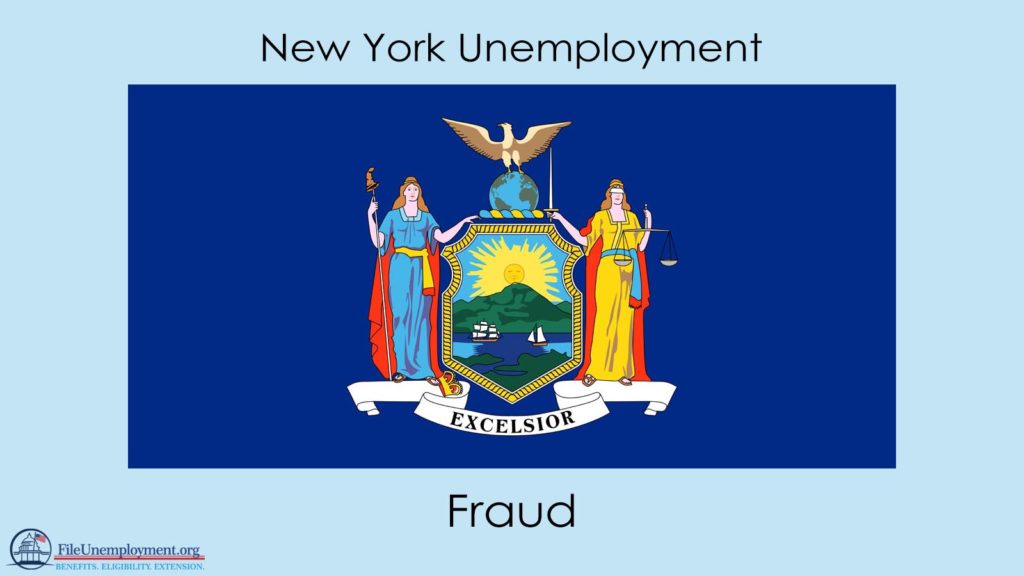What is NY unemployment fraud?
Most individuals who file for unemployment are doing so with integrity and intentions of honesty. Part of the process for collecting unemployment benefits involves providing personal information and information about your previous work history, wages, and earnings.
If your information is intentionally misrepresented to deceive the New York State Department of Labor, then that is New York unemployment fraud. Alternatively, if you did not apply for unemployment compensation and someone else uses your personal information to collect UI benefits, they are also committing unemployment insurance fraud.
The New York unemployment office wants to curb incidents of fraud because it can drain the available funds for jobless individuals who are truly in need of unemployment benefits.
Examples of claimants committing fraud
One example of fraud can occur when claimants fill out their New York unemployment application. Claimants are required to report details of their work history, which includes how much money they made as an employee. Since the weekly benefit amount (WBA) awarded to those collecting unemployment insurance is based on these earnings, it can be tempting to inflate them to collect more. However, lying is a clear case of fraud.
Another related example of fraud can include lying about the nature of your separation or termination from your previous workplace. UI benefits are for individuals who are unemployed through no fault of their own, not those who were terminated for concerns like gross negligence or wilful misconduct such as violations of company policy or the law.
Claimants might also lie about other work-related details, such as the amount of time they spent at certain jobs or where they worked. Claimants must also only file for UI benefits if they are currently located in the United States or its territories. Lastly, collecting accidental overpayments without reporting them or returning them is also considered fraud.
Fraud may also include working while you collect benefits and not reporting that part time income. You are allowed to earn up to $504 through up to 30 hours of work while collecting benefits. However, if you exceed those amounts, you do not meet the requirements for New York unemployment eligibility for that particular week, and those details must be reported. This includes cash payments.
Penalties for claimants committing fraud
The penalty for unemployment fraud is that the claimant must return the money, plus a 15% fine or $100 fine, whichever is greater. They will also forfeit the right to collect unemployment compensation benefits in the future. If they cannot or will not return the money, a judgment may be obtained against them for a period of up to 20 years for wage garnishment, or even forfeiture of a tax refund, so that the owed balance can be settled. This judgment will visibly be on their record and may impact their credit score, along with the ability to secure housing or find a job.
How to report fraud
To report unemployment insurance fraud, you can go online to labor.ny.gov and click on the Report Fraud tab near the bottom of the screen, or call 888-598-2077.
To report a mistake you made when filing a weekly claim (such as incorrectly reporting work search requirements or income earned), you can go online to labor.ny.gov/signin and input your NY.gov username and password.
You can then go to the messages section and compose a new message, explaining the mistake.
You can also call 888-209-8124, which is open Monday through Friday from 8:00 AM to 5:00 PM.
Identity Theft
Identity theft is when someone uses your personal information to apply for benefits or even to file a weekly claim. This can include details like name, address, Social Security number, and banking information.
How to protect your personal information
When you fill out your NY unemployment application, make sure to protect the information you will use to collect your weekly benefits, like your PIN number.
In addition to being the victim of fraudulent unemployment claims, there are other types of outright fraud every New Yorker should take steps to protect themselves against. It’s a good idea to monitor your credit report and make sure nobody is using your personal information to open up a credit card or take out a loan. Your insurance company or a company like AAA can also provide the latest news and tips about protecting yourself from a fraudulent claim or identity fraud, along with providing active fraud alert monitoring.
Learn to recognize phishing attempts. These are emails, phone calls, and texts that are used to gather personal information, often under the guise of someone posing as your bank or a government agency. The state labor department noticed there was an uptick in unemployment fraud cases when they were issuing pandemic unemployment assistance.
If you received a monetary determination that you would be collecting unemployment insurance benefits, but you never applied for them, you should not collect this unemployment assistance, but instead report it as UI fraud. Sometimes criminals will collect information with phishing attempts and use it at a later date to open an unemployment claim, or even sell it to a third party. Your best defense is staying vigilant by protecting your personal information like social security numbers and banking information. Shred sensitive documents, including mail offers for credit cards.






Comments are closed.